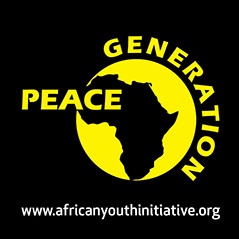African Peace Movement fueled to realize Peace and Justice
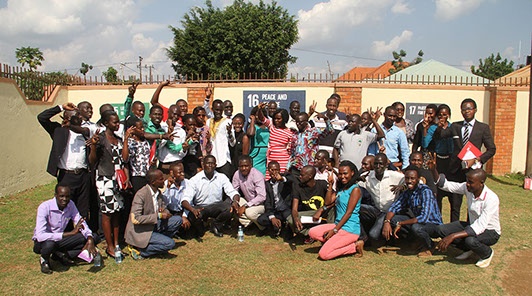
The continent of Africa has for long been marred with insecurities and wars that have tarnished the image and prolonged the longstanding legacies of injustice from the slave trade era to post independence era that saw several wars as a result of political struggle for power from the Colonial imperialists. To this day, several conflicts continue to constrain the continent’s progress towards sustainable peace, justice and development.
There is a global consensus that the foundational problems of Africa rest in the existing bad governance and poor leadership. Majority of the conflicts on the continent arise directly or indirectly as a result of leadership struggles; from South Sudan, Burundi, Central African Republic and the Eastern Democratic Republic of the Congo demonstrate the leadership aroused struggles that are causing inhuman treatment and grave violations of human rights for the ordinary citizens.
African Youth Initiative Network (AYINET), an organisation founded by Victor OCHEN, himself a childhood victim of war, was founded to rehabilitate victims of violent conflict and to promote youth leadership for good governance. Since its inception, Up to 12,000 war victims have been reached with medical repair surgery and psychosocial support while 7,000 youths in the greater north region in Uganda have been empowered through mentorship programs designed to raise resilient peace builders.
MICC humanitarian Law and Human rights Training
Against this backdrop, AYINET in partnership with the Model International Criminal Court (MICC), a simulation of the International Criminal Court, organized by the German organisation, Kreisau-Initiative e.V. trained 42 youth from the great lakes region on Human rights and humanitarian law in a week long workshop that was held at AYINET head office in Lira from 17 – 22 July 2016. The event participants who comprised of youth workers, law students and practitioners hailed from South Sudan, Burundi, Rwanda and Uganda.
Maid Konjhodzic, a trainer from the MICC explains the training was to help the young people to better understand international justice mechanisms and institutions, their roles and limitations as well. The training also sought to delve into deeper understanding of transitional justice elements and components that fit best in their different communities, being inspired by examples and other stories from around the world that defined mechanisms on how to overcome challenges and achieve the goals of Transitional Justice.
Pertinent issues of consideration in regard to understanding and advocating human rights were the culture context, peace and justice in relation to human rights. Peace is not only absence of violence and war, but also fair treatment, access to basic needs, political participation, equality, justice. Justice and peace are end products of human rights.
Opio Jackson, MICC Facilitator elaborated that the cultural context has great influence on how human rights activities are conducted reinstating the need to be culture sensitive. He added that Culture can’t be universal but general basic human rights run across all populations; for instance, right to life, women rights, equal dignity and children’s rights.
The event was highly engaging and participatory , “Learning about Human Rights Instruments, learning through Human Rights; active involvement in the design of activities hence developing empathy amongst the participants and finally learning for Human rights; using the learned skills to positively and actively contribute to the community.” Nina Lueders MICC Facilitator
Participants Speak Out
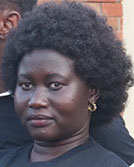
Martha Ikayak; South Sudanese working for Youth Empowerment Network for Peace and reconciliation
“…I have been an activist talking against bad things happening in society; I learnt the need for a bigger network to reach wider audiences. It will help me to talk more authoritatively about these issues having learnt several other instances and events all over the world we can relate to. …As youth, we need to use this energy towards strategies for peace avoiding violent measures of avoiding conflict/war.”
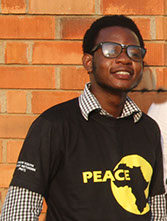
Ian Wabwire; A youth activist, Law student in Makerere University
“Lawyers get to understand how urgently justice needs to be dispensed to the vulnerable people/war victims…I will write blogs to spread all this information with a wider audience.”
“Leaders should find a way to stop over thinking about power but be humane, understanding they come and go but should leave a legacy of peace and human rights….Youth should get involved in building peace and promoting realization of human rights through all available means, like using social media to change the world….Peace agenda should transcend, preaching hope, justice plus reconciliation.”
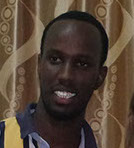
Derrick Ndayishimiye; A Burundian portrait artist living in Uganda as a refugee,
“Our Elders always tell us, the future belongs to us, yet the present is not even being seen. We have to open our minds and hearts and stop being used as criminals and yet at the end of the day, we suffer the consequences… Brotherhood should flourish as opposed to ethnic divisions. We have to reconcile.”


